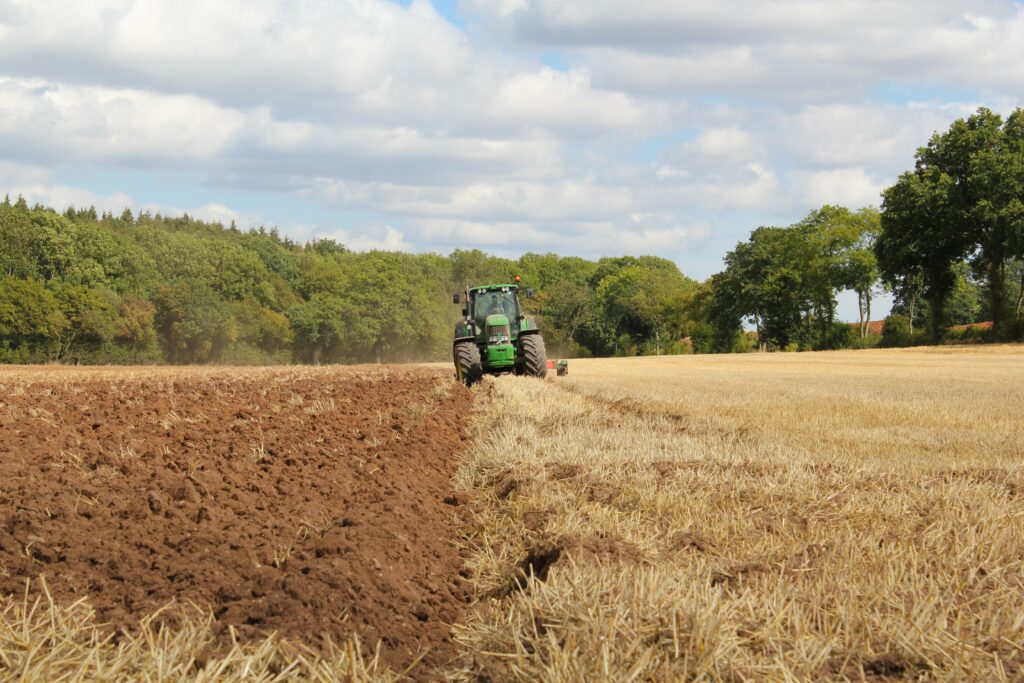As the world grapples with the urgent need for sustainable solutions to combat climate change, innovative approaches are emerging to reshape traditional practices in various industries. In agriculture, one such trailblazing concept has captured the attention of experts and farmers alike: smart carbon farming. This revolutionary approach, championed by a visionary advocate for sustainable agriculture, presents a novel strategy to mitigate climate change while promoting a resilient and productive future for farming.

Understanding Smart Carbon Farming
Smart carbon farming, championed by visionary experts like John Gessin, is a forward-thinking methodology that encompasses the integration of carbon sequestration practices and advanced agricultural technologies, fostering a dynamic synergy between nature and innovation. This transformative approach capitalizes on nature’s inherent ability to capture and store carbon within the soil, plants, and biomass, harnessing these living systems as powerful carbon sinks. By catalyzing this natural process, smart carbon farming presents an innovative and harmonious solution to address climate change through sustainable food production, bridging the gap between agricultural productivity and environmental stewardship.
Carbon Sequestration in Agriculture
At the core of smart carbon farming lies the concept of carbon sequestration – the process of capturing and storing carbon dioxide from the atmosphere. This mechanism holds immense significance in mitigating climate change by reducing greenhouse gas emissions. Through the careful manipulation of soil, plant, and biomass interactions, carbon sequestration can effectively contribute to combating the adverse effects of global warming.
Components of Smart Carbon Farming
Smart carbon farming encompasses a range of techniques designed to enhance soil carbon storage and utilization. These techniques include cover cropping strategies that minimize soil disturbance and promote organic matter accumulation, playing a pivotal role in bolstering soil health and carbon content. Additionally, reduced tillage practices preserve soil structure and prevent carbon loss, reinforcing the soil’s capacity to retain carbon and support sustainable growth. The incorporation of biochar and organic amendments further enriches soil vitality, introducing a diverse array of organic compounds that contribute to long-term carbon storage and nutrient cycling. Moreover, strategic planting methods optimize carbon uptake and storage, harnessing the power of vegetation to capture atmospheric carbon dioxide and channel it into the soil for lasting environmental benefit.
Environmental and Agricultural Benefits
The implementation of smart carbon farming yields an array of benefits that extend beyond environmental conservation. By sequestering carbon, this approach significantly contributes to climate change mitigation, making it a crucial player in the fight against global warming. Furthermore, the practice enhances soil health, structure, and fertility, resulting in increased water retention and reduced erosion, thereby fostering a more resilient and productive agricultural landscape. As a consequence, farmers can enjoy improved crop yields and greater food production capabilities, reinforcing the symbiotic relationship between sustainable practices and enhanced agricultural outcomes.
Transforming the Future of Agriculture
Smart carbon farming has the potential to revolutionize the trajectory of global agriculture by not only mitigating climate change but also fostering more regenerative and ecologically balanced farming practices. As this approach gains momentum, it lays the foundation for a harmonious coexistence between food production and environmental preservation, showcasing how innovative solutions can address complex challenges. The growing number of successful case studies not only underscores the feasibility and impact of smart carbon farming but also inspires a new era of conscious cultivation that prioritizes both sustenance and sustainability.
Challenges and Considerations
While the promise of smart carbon farming is undeniable, challenges and considerations must be addressed for its widespread adoption. Balancing carbon storage objectives with other agricultural priorities requires a delicate equilibrium. The scalability and adaptability of this approach across diverse regions and farming contexts remain critical aspects to ensure its success. Moreover, navigating the economic and logistical implications of transitioning to smart carbon farming requires collaboration among stakeholders, technological innovation, and supportive policy frameworks.
Collaboration and Education
The realization of smart carbon farming’s potential hinges on collaborative efforts among farmers, researchers, and policymakers. Building a global community that advocates for sustainable agriculture is essential to drive widespread adoption. Moreover, education plays a pivotal role in equipping stakeholders with the knowledge and tools required to implement these innovative practices effectively. By fostering partnerships, sharing success stories, and providing training opportunities, we can empower individuals and communities to contribute to a more sustainable and resilient agricultural landscape.
Conclusion
In conclusion, the emergence of smart carbon farming stands as a beacon of hope in the fight against climate change. By capitalizing on the natural processes of carbon sequestration, this approach offers a viable and transformative solution to combat the detrimental effects of global warming. Through enhanced soil health, improved agricultural productivity, and a harmonious relationship with the environment, smart carbon farming paves the way for a sustainable and resilient future. As we look ahead, it is imperative that individuals, communities, and policymakers embrace this innovative approach and join the movement to usher in a new era of responsible and forward-thinking agriculture.



